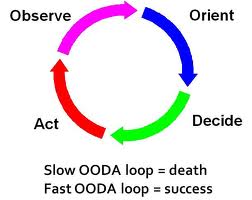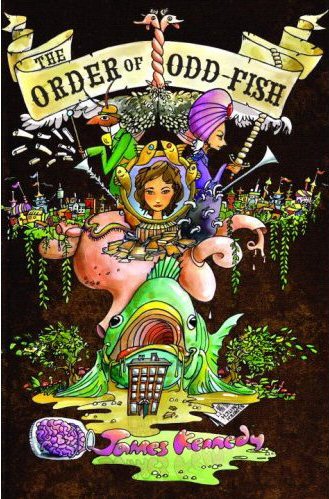Episode 7 of The Secrets of Story Podcast: OODA Loops, Expectations, Mission: Impossible and the Screwtape Letters!
October 29, 2018
« Lucy Momo’s Summer 2018 Movies Screening dates for the EIGHTH ANNUAL 90-Second Newbery Film Festival, 2019! (Plus: A “Les Miserables”-style Tale of Despereaux) »
It’s been nearly a year since Matt Bird and I released an episode of our podcast, The Secrets of Story, in which we try to figure out what makes good stories work. Matt and I had actually recorded an episode right after we’d both seen The Last Jedi—a movie I adored and Matt hated. In that episode (which I guess Matt will never release) we argued about that movie. Maybe I Eberted too hard, or maybe Matt didn’t Siskel quite enough. In any case, Matt found it unreleasable. And then the podcast went dormant for a while.
Now it’s back! I think it’s a good episode. I’ve had a few half-formed ideas lately about managing the audience’s expectations. I’ve been mulling some other ideas about how specific expectations bear on how a character behaves in a story. These ideas and others all finally crystallized when I heard about a concept invented by some 1970s military person called “OODA Loops,” a scheme which tries to clarify how people adjust to their environment and make decisions and act.
It sounds obvious when it’s spelled out—basically, we’re all always going through a cycle of Observing the situation around us, Orienting ourselves to it, Deciding what to do, and Acting on that decision. But once it’s made explicit like this, it’s easier to conceive of how your adversary is also going through the same OODA cycle at the same time. And so what you try to do is to complete your cycle faster than your adversary does—that’s what’s called “getting inside their OODA loop”—so that you can decide and act more quickly and with more agility than them. That way, they’re constantly adjusting to the new situations you’re creating. They’re stuck in the “Observe” and “Orient” parts of the loop, which they can never complete because you keep knocking them back with new things for them to observe and orient themselves to. The alternative is letting them get used to the situation and figuring it out so they can “Decide” and “Act” to their advantage . . . or even worse, letting them overwhelm you with new situations of their own creation. Getting inside the adversary’s OODA Loop is a way of deliberately introducing chaos into a situation for your benefit. I saw some merit in the ideas from a storytelling point of view. So I flesh out that theory with Matt on the podcast.

|
I talk about how storytellers can use the OODA Loop for more interesting storytelling; I also talk about how characters often “get inside” each other’s OODA Loops. One of the scenes that I reference in the podcast is this one from the third Mission Impossible movie, in which Tom Cruise’s hero is interrogating Philip Seymor Hoffman’s villain. At first it seems that the hero holds all the cards, but by the end of the scene the villain is dominant, and that’s because he’s gotten inside the hero’s OODA Loop:
I don’t have the time to explain it all again here; just listen to my mellifluous tones on the podcast!
At the end of each episode of the podcast, Matt and I have this tradition of “giving away” ideas for TV shows and movies, and I had an idea about a limited TV series adaptation of C.S. Lewis’ The Screwtape Letters that I think is actually pretty workable. It’s worth listening to this one all the way to the end.
Our podcast is back in the saddle, baby! Indeed, we recorded this episode and another episode back-to-back that night. So there will be another episode going up in a few weeks. It never rains but it pours!














